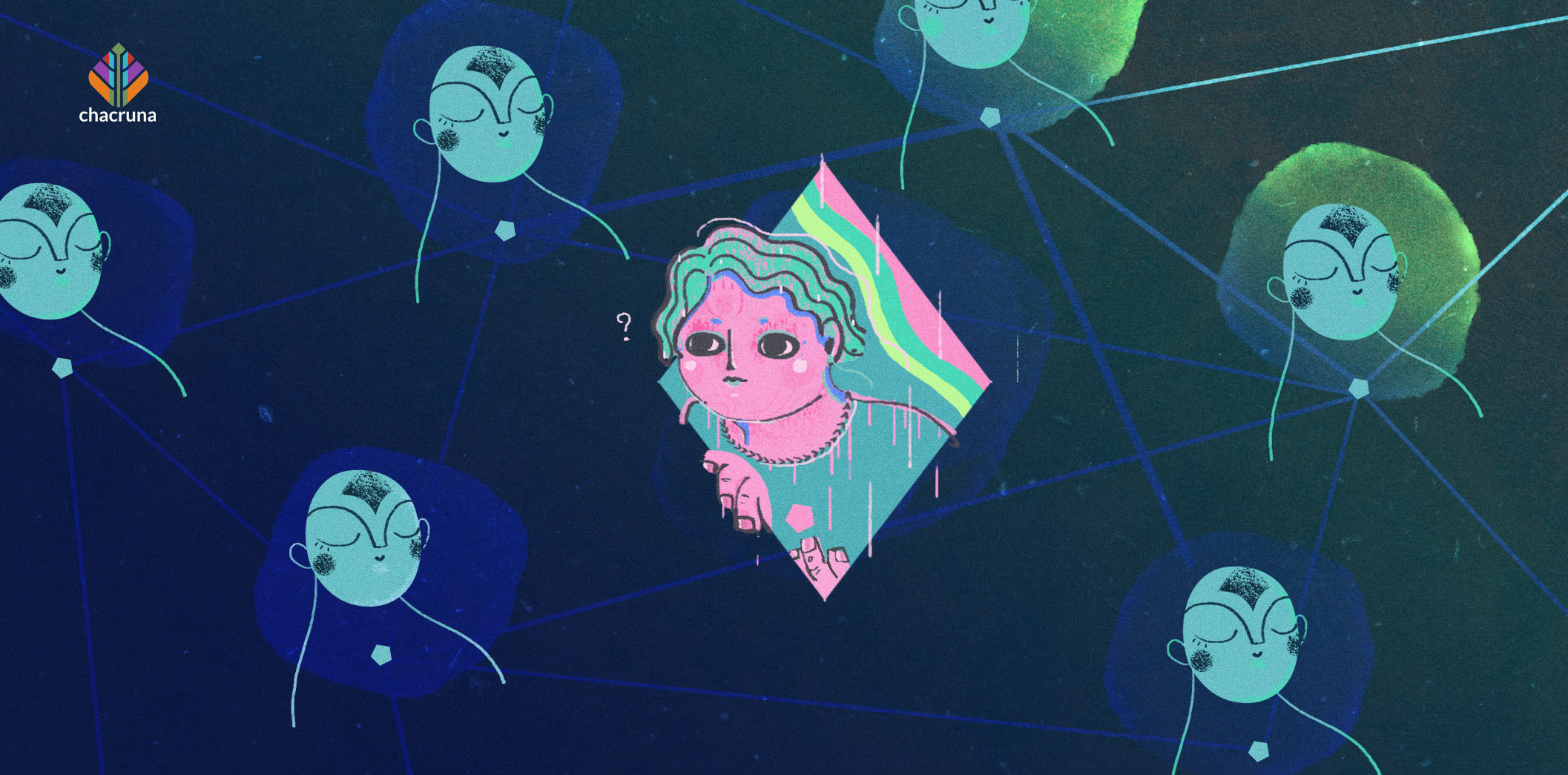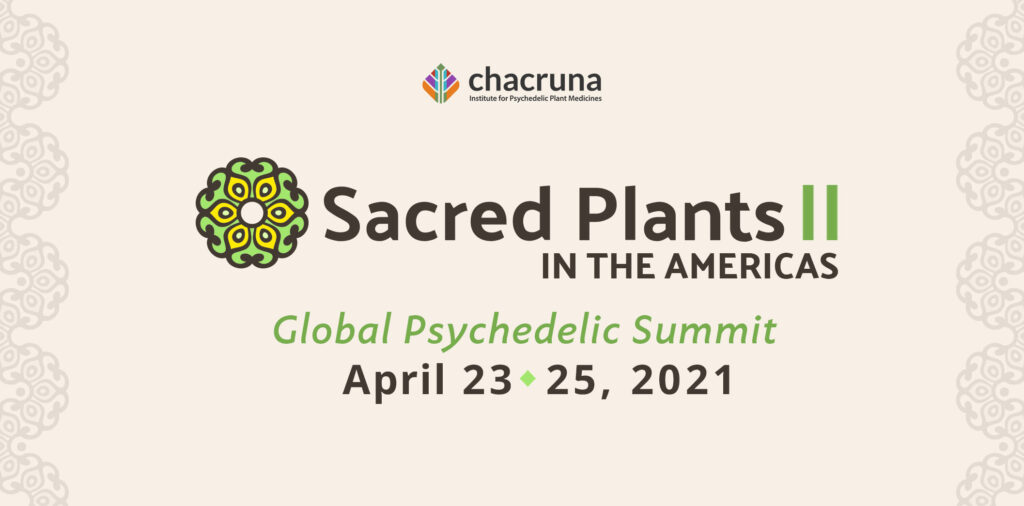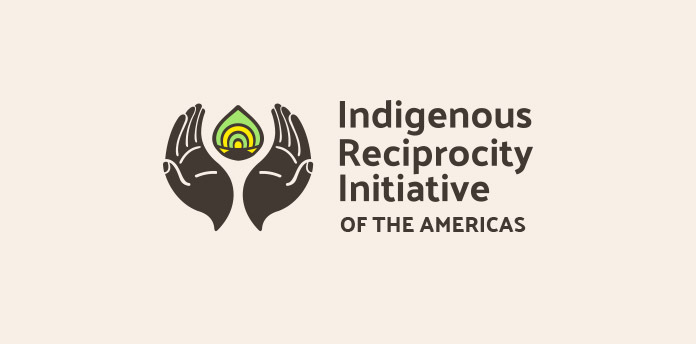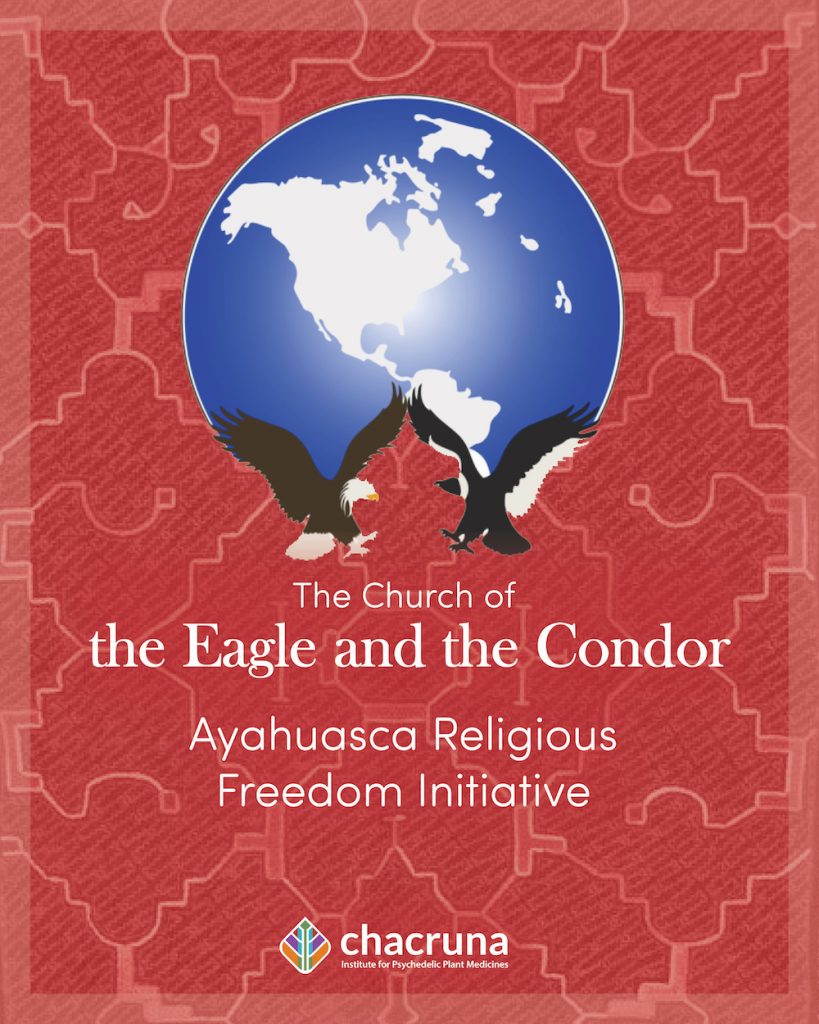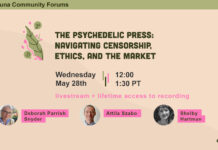- Why Oneness is Not Incompatible with Identity Politics - March 16, 2021
- Why Oneness is Not Incompatible with Identity Politics - March 16, 2021
The last few years have seen a growing attention to how the psychedelic renaissance can better address the needs of marginalized communities and ensure equitable access to, and treatment in, psychedelic-assisted therapies. However, these efforts have been consistently met with opposition from a small but vociferous portion of the psychedelic community. One of the main arguments (Labate & Buchanan, 2020) put forth is that identity politics—politics in the name of a group that shares an identity marker such as race, gender, sexual orientation, antiracism, feminism, the LGBTQIA2S+ movement, etc.—are antithetical to the medicines’ teaching of “oneness.”
In this article, we take a closer look at some of the implications of this argument. We outline some of the potential harm in holding oneness as the ultimate psychedelic experience on which all healing depends, hypothesize that oneness may be a privileged and intrinsically heteronormative experience, and show that, even if oneness is indeed the ultimate truth revealed by psychedelics, it is not, in fact, incompatible with identity politics. To be clear, some people, including queer and trans people, have powerful and healing psychedelic experiences of oneness. We celebrate that. Our hope is that this article will help legitimize other kinds of experiences, encourage research on the LGBTQIAS2+ community and psychedelics, and debunk claims that focusing on identity means one has not understood that “we are all one.”
Join us at Sacred Plants in the Americas II
“We Are All One” is the Dominant Narrative About Psychedelic Truth and Healing
The belief that the ultimate psychedelic experience and truth that psychedelics have to teach is oneness isn’t just held by those psychonauts who oppose equity initiatives. It is the dominant narrative in both psychedelic research studies and the broader psychedelic community.
In the psychedelic community, “We are all one” most often stands in for “We are all the same,”
Many clinical research trials use the Mystical Experience Questionnaire (MEQ) as a way to try to understand and predict psychedelics’ effectiveness in relieving depression, anxiety, end-of-life dread, and other symptoms. The working hypothesis is that, if people have a mystical experience as defined by the MEQ, then they will have a reduction in symptoms. While the MEQ also measures positive mood, ineffability, and transcendence of time and space, under the mysticism category, 6 of the 15 measures are related to oneness, with the others focused on the sacred and the noetic. The oneness-related measures include “Experience of the fusion of your personal self into a larger whole,” “Experience of oneness or unity with objects and/or persons perceived in your surroundings,” and “Experience of the insight that ‘all is One.’” Oneness is described as an experience of sameness, a merging with others into a greater singular whole. In the psychedelic community, “We are all one” most often stands in for “We are all the same,” a point we return to below. The issue isn’t that the MEQ measures these experiences but that it defines the mystical experience almost exclusively in their terms. As Alex Besler explains (Chacruna Institute, 2019), it does not measure other experiences that may also have something to do with healing outcomes, such as encounters with spirit guides, powerful somatic-based energetic experiences, reparative relational experiences, connections with nature, and strong sensory or even sensual experiences. According to the logic of the MEQ, if a patient has not had an experience of oneness, then they have not had a mystical experience, implying they have missed the healing potential of psychedelics.
According to the logic of the MEQ, if a patient has not had an experience of oneness, then they have not had a mystical experience, implying they have missed the healing potential of psychedelics.
This privileging of oneness is also pervasive in the wider psychedelic community. It finds its origins in Aldous Huxley’s seminal 1954 The Doors of Perception, which influenced Timothy Leary, who, in turn, helped shape an entire generation’s discourse on psychedelics, the effects of which are still tangible today, no matter how hard the community has tried to distance itself from this controversial figure.
The Experience of Oneness May be Correlated with Privilege
Equity in psychedelics requires taking seriously the multiplicity of experiences that patients and users have.
This pervasive narrative that psychedelics reveal that “we are all one” and that the healing gained from them is tied to that experience is potentially harmful to all, but especially to marginalized communities, and even more particularly to the LGBTQIA2S+ community. Any discourse that privileges a singular narrative runs the risk of being oppressive, since it inherently delegitimizes other narratives. Thus, the trope of oneness as the ultimate psychedelic experience leaves no room for other experiences of psychedelics that may be equally meaningful and healing. Equity in psychedelics requires taking seriously the multiplicity of experiences that patients and users have. If it does not, psychedelic-assisted psychotherapy risks becoming re-traumatizing instead of therapeutic.
Indeed, part of the trauma of LGBTQIA2S+ people is that their sexual and gender identities aren’t taken seriously, are not believed, dismissed as unreal, and erased (e.g., queer people told their sexual orientation is just a phase, trans people’s gender identity being seen as fraudulent). The last thing this community needs is to have its experiences of psychedelics ignored, seen as “lesser than,” delegitimized, silenced, or expunged if they do not fit the oneness narrative.
We are particularly concerned about this because we think the experience of oneness may be related to privilege. Our own experiences, our conversations with LGBTQIA2S+ clients and colleagues, and the growing accounts of queer and trans people’s psychedelic experiences, suggest that the revelation that “we are all one” may not be the dominant or most salient psychedelic narrative or experience among the LGBTQIA2S+ community. The evidence is anecdotal, and more research is needed to ascertain this; we would like to see a research study that rigorously investigates whether there is any correlation between the incidence of oneness experiences and patients’ and users’ identity. Are white cisgender heterosexual men, who developed and propagated the discourse of oneness and are often its most vocal proponents, more likely to have that experience than queer and trans people?
Therapeutic use of psychedelics has certainly come a long way since then but there may be a need to reassure the LGBTQIA2S+ community that psychedelic-assisted therapy is not attempting to change us in any way and ensure that protocols support and affirm the expression, discovery and embrace of non-normative gender identities and expressions and sexual desires.
Discover Indigenous Reciprocity Iniciative of the Americas
One of the hallmarks of privilege is that it is invisible to those who have it (McIntosh, 1989), unless they engage in the sustained, introspective work of becoming aware of it. In other words, people with privileged identities are less likely to think about their identity. Those with marginalized identities, on the other hand, are often highly aware of how they differ from what is considered the “norm.” For queer and trans folks, healing from homophobia and transphobia often involves accepting that difference and finding celebration and empowerment in it. Given this, an experience of oneness as sameness may not only be less available to LGBTQIA2S+ folks; being encouraged to pursue it may also be harmful. It is particularly important to bear this in mind given psychedelic-assisted psychotherapy’s history of conversion therapy (most famously by Timothy Leary and Stanislav Grof). Therapeutic use of psychedelics has certainly come a long way since then but there may be a need to reassure the LGBTQIA2S+ community that psychedelic-assisted therapy is not attempting to change us in any way and ensure that protocols support and affirm the expression, discovery and embrace of non-normative gender identities and expressions and sexual desires. We are well on the way to this with the revision of protocols; perhaps, most saliently embodied by the removal of MAPS’ requirement that the MDMA-assisted psychotherapy therapy team consist of a (cis)man and (cis)woman (one of the original reasons for having a cisman- ciswoman co-therapy team was to encourage healing mother-father experiences, itself rife cisheteronromative assumptions).
A growing and exciting body of research is investigating the potential of psychedelics to help LGBTQIA2S+ embrace their identities and heal from homophobic and transphobic trauma. Reports from queer and trans patients and users strongly suggests this may be the case. We would also like to see a rigorous study interviewing LGBTQIA2S+ psychedelic users about their experiences to see if there is any kind of meaningful and distinct commonality.
The Narrative of Oneness as Sameness May Be Inextricably Linked to Cisheterosexism
Timothy Leary claimed that “the LSD experience is all about …merging, yielding, flowing, union, communion…The natural and obvious way to take LSD is with a member of the opposite sex, and an LSD session that does not involve an ultimate merging with a person of the opposite sex isn’t really complete.”
Support the Eagle and the Condor’s Ayahuasca Religious Freedom Initiative
We are also concerned that the dominant narrative of oneness may be an inherently cisheterosexist one. In a 1966 interview (Playboy, 1966), Timothy Leary claimed that “the LSD experience is all about …merging, yielding, flowing, union, communion…The natural and obvious way to take LSD is with a member of the opposite sex, and an LSD session that does not involve an ultimate merging with a person of the opposite sex isn’t really complete.” Like the MEQ, Leary clearly expresses oneness as sameness, since merging entails the dissolution of discrete entities (here, cismen and ciswomen) into one. Given Leary’s conflation of oneness with cisheterosexual sex, oneness becomes intrinsically cisheteronormative, raising the question of whether its desirability is predicated on a cisheteronormative ideal.
Leary’s cisheteronormative ideal of sameness is hard to dismiss as an aberration because of how closely it ties into the history of Western philosophy and, by extension, culture. Feminist theorists such Luce Irigaray, for example, have long critiqued Western culture’s inability to truly think about difference because every concept is elaborated from a cisheterosexual masculine perspective. The Western cultural framework in question is also a white, colonial one; we believe decolonizing psychedelic discourse, gender, and sexuality is a cornerstone of equitable psychedelic-assisted psychotherapy.
Oneness Doesn’t Necessarily Entail Sameness
Psychedelics such as psylocibin and LSD do, indeed, affect the brain in ways that may be conducive to experiences of oneness. While some no doubt experience that as a revelation of sameness, we suggest we need more qualitative data and a more expansive vocabulary to talk about these experiences. Anecdotal evidence suggests that oneness doesn’t necessarily mean sameness. It can also be an experience of interconnection that recognizes different entities but understands them to coexist in an ecosystem of interdependence. Or, it can be a powerful experience of common humanity that still recognizes distinctiveness (both the same and different). We need to get curious about what patients and users mean when they say “we’re all one.”
Oneness isn’t Incompatible with Identity-Based Approaches to Equity
But even if the realization of oneness as sameness is, in fact, the ultimate truth to be revealed by psychedelics, that truth would not be incompatible with identity-based approaches to equity. The logic in rebuttals to equity efforts is that focusing on difference is antithetical to the higher truth that “we are all one.” Such arguments want the functioning of the psychedelic community to reflect that which the medicines teach us; but identity politics are not, in fact, at odds with oneness.
The realization of oneness can be seen as a recognition that identities are socially constructed. They have no biological or ontological reality (we are the same at the core), but they come into being through networks of power (medical discourse, legal apparatus, cultural norms, etc.). Thus, for example, as Michel Foucault highlights, heterosexuality and homosexuality are nineteenth-century inventions. People were engaging in “same-sex” acts before then but those acts were not understood to say anything about the nature of those engaged in them.
Sign up to our Newsletter:
However, as feminist and queer theorists have long been arguing, just because an identity is socially constructed doesn’t mean that it does not have tangible effects, or that the recognition of its fictiveness is enough to dismantle it. As Christine Delphy puts it, social construction is not just social conditioning or socialization that could be transcended through a shift in consciousness. It entails the whole power of society, including its social practices, institutions, etc. There is a material reality to these socially-constructed identities that cannot be willed away but needs to be named and addressed in order to be dismantled. Queer theory, which criticizes identity politics because of the normative power of identities, also recognizes the need to strategically organize around them to change the material circumstances underpinning them. To put it another way, the realization of a post-identity world requires attending to the material conditions that produce identities. Because psychedelics can show us that identities are socially constructed, they can call us into, rather than out of, working for equity.
Art by Karina Alvarez.
References
Chacruna Institute. (2019, July 1). Queer critique of the psychedelic “mystical experience” [Video]. YouTube. https://youtu.be/0RBS57JiTms
Delphy, C. (2000). The invention of French feminism: An essential move. Yale French Studies, 97, 166–197. doi:10.2307/2903219
Foucault, M. (1990). The history of sexuality. Volume 1: An introduction. New York City, NY: Vintage Editions/Random House.
Irigaray, L. (1985). This sex which is not one. (C. Porter & C. Burke, Trans.) Ithaca, NY: Cornell University Press.
Labate, B. C., & Buchanan, N. T. (2020, November 5). Hate & social media in psychedelic spaces. Chacruna.net. https://chacruna.net/psychedelic-community-social-media-racism/
McIntosh, P. (1998). White privilege: Unpacking the invisible knapsack. Peace and Freedom, July/August, 10–12.
Playboy Magazine. (1966, September). Playboy interview: Timothy Leary. Playboy Magazine.
Take a minute to browse our stock:
Did you enjoy reading this article?
Please support Chacruna's work by donating to us. We are an independent organization and we offer free education and advocacy for psychedelic plant medicines. We are a team of dedicated volunteers!
Can you help Chacruna advance cultural understanding around these substances?


